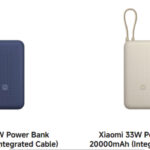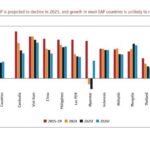Vietnam’s Registry Department under the Ministry of Construction has finalized a draft on fuel efficiency standards for road vehicles. The proposal sets a target average fuel consumption of 4.83 liters per 100 km for passenger cars by 2030.
Flexible Mechanism
Notably, the 4.83 liters/100 km target is a national average rather than a cap for individual models. This regulation applies only to newly manufactured, assembled, and imported vehicles, not to those already in use. Manufacturers and importers will receive specific targets based on their product mix and volume.
Additionally, automakers can trade targets between years as long as they meet the three-year cycle average. Companies can also exchange targets similarly to a fuel credit trading mechanism, where those with lower average consumption can sell excess credits to those with higher consumption.
According to the Registry Department, this mechanism prevents market disruption by avoiding sudden halts in traditional vehicle sales. It also creates a fuel credit trading market within the automotive industry, a solution effectively implemented by many countries.

Hybrid and electric vehicles will become more prevalent, offering consumers a wider range of choices. Photo: NGUYỄN HẢI
Mr. Lê Hồng Việt, Deputy Director of the Road Vehicle Emission Testing Center at Vietnam’s Registry Department, stated that the Vietnam Automobile Manufacturers’ Association (VAMA) supports the 4.83 liters/100 km proposal, viewing it as a practical contribution to national emission reduction goals.
“The drafting committee continues to research and assess detailed impacts based on market data and development trends to establish a reasonable implementation roadmap,” Mr. Việt affirmed.
According to Mr. Trần Đình Sơn from the International Council on Clean Transportation, implementing fuel consumption regulations offers long-term benefits for both the economy and the environment. Delaying implementation would have negative impacts on multiple fronts.
Specifically, consumers would face higher fuel costs when using inefficient vehicles. Nationally, energy security would heavily depend on gasoline and diesel imports. Environmentally, higher greenhouse gas emissions and air pollution would hinder Vietnam’s climate commitments and public health.
For the automotive industry, delayed emission regulations would reduce competitiveness, as manufacturers struggle to keep pace with global markets moving toward stricter fuel efficiency and electrification standards.
Driving Market Transformation
Vietnam’s Registry Department believes that enforcing fuel efficiency standards will compel manufacturers and assemblers to invest in new technologies and importers to select suitable products—such as hybrid, electric vehicles, direct fuel injection systems, continuously variable transmissions, and optimized aerodynamics. This will benefit consumers by providing safer, more fuel-efficient, and lower-emission vehicles.
“With a 0.5–1 liter/100 km reduction, each vehicle can save millions of dong in fuel costs annually. For logistics companies, taxis, and ride-hailing services, reduced fuel costs will increase profits, lower service prices, and enhance competitiveness. From a management perspective, a coordinated shift to hybrid and electric vehicles will reduce pressure on fuel imports,” an expert analyzed.
According to Mr. Trần Đình Sơn, early adoption of fuel consumption standards and a clear annual regulatory framework will give automakers time to prepare. Initially, companies can improve internal combustion engines and adopt hybrid technologies. Long-term, significant investment in electrification—from hybrid to fully electric—is the prevailing trend.
Additionally, manufacturers can collaborate with suppliers and develop domestic green supply chains to reduce costs and improve competitiveness.
Mr. Sơn also noted that the national average fuel consumption was already 6.8 liters/100 km in 2020, with very few electric vehicles. By mid-2025, this figure dropped to 4.42 liters/100 km due to increasing electric vehicle adoption, already below the 2030 target of 4.83 liters/100 km. This demonstrates that the technology to meet emission standards is readily available.
He cited examples of countries with much lower fuel consumption targets than Vietnam, such as Japan (3.6 liters/100 km by 2030), China (2.5 liters/100 km by 2030), and the U.S. (1.6 liters/100 km by 2032). A decade ago, Japan achieved 4.9 liters/100 km, while Europe, China, and the U.S. reached 3.8 liters/100 km by 2023.
“Vietnam’s target is minimal and entirely feasible. Hesitation or reducing ambition will cause us to fall behind not only in technology but also in market integration,” Mr. Trần Đình Sơn warned.
Current Regulations Are Outdated
According to Vietnam’s Registry Department, in 2013, the Ministry of Science and Technology issued TCVN 9854:2013, setting fuel consumption limits and testing methods for vehicles. VAMA statistics show that most vehicles sold between 2016 and 2020 met these standards.
However, applying TCVN 9854:2013 fuel limits has not significantly reduced carbon emissions in the industry, necessitating new regulations.

Vietnamese Billionaire Pham Nhat Vuong Launches New Company, Set to Revolutionize Industry Where Vietnam Ranks Top 12 Globally and Leads ASEAN
This is the pivotal piece that completes the five-pillar vision set forth by Vingroup under the leadership of Phạm Nhật Vượng.
Deputy Minister Nguyen Duc Chi: Ministry of Finance Has Not Received Any Proposals from Businesses Regarding the Pilot Implementation of Cryptocurrency Transactions
According to Deputy Minister Nguyen Duc Chi, as of now, the Ministry of Finance has not received any proposals from businesses regarding the pilot implementation of cryptocurrency transactions. However, the Ministry is aware that several companies have already begun preparations for such initiatives.
What Competitive Advantage Enables Masan MEATLife to Optimize Operational Efficiency and Sustain Growth Momentum?
Modern consumers are no longer satisfied with simply choosing fresh and healthy food. They demand transparency, prioritizing products with clear origins, ethical production processes, and guaranteed nutritional value to safeguard the well-being of their families.
Government Sets Target for Per Capita GDP to Reach $8,500 by 2030
The Vietnamese government has recently issued Resolution No. 306, outlining the adjusted national master plan for the 2021-2030 period, with a vision toward 2050. A key target set within this framework is to achieve a per capita GDP of approximately $8,500 by 2030, based on current prices. The plan also aims to restructure the economy, with the service sector contributing over 50% of GDP, the industrial and construction sectors accounting for more than 40%, and the agriculture, forestry, and fisheries sectors making up less than 10%.













































